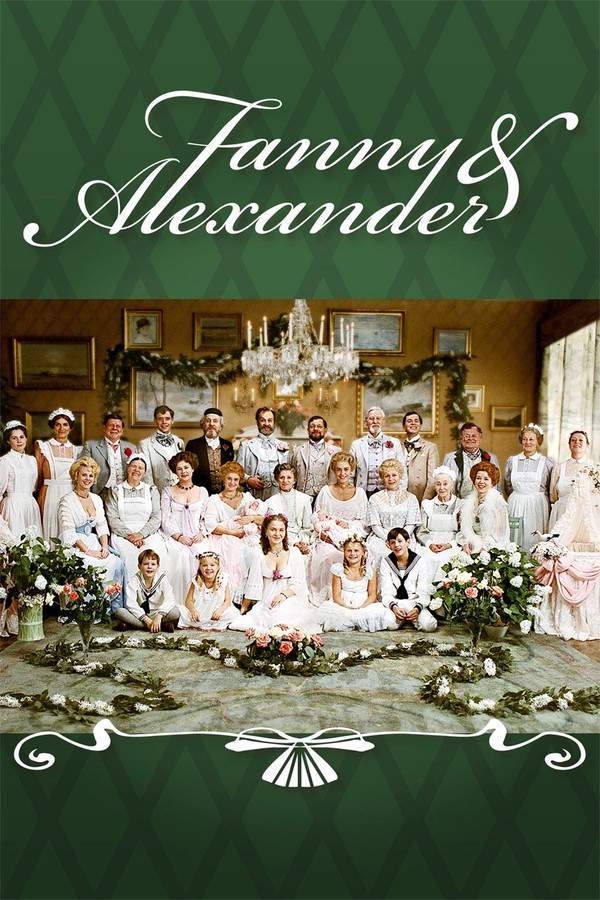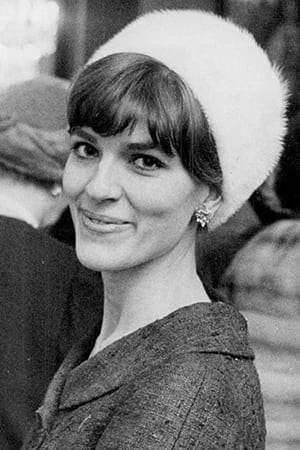Fanny and Alexander (re-release) 2004

Growing up within a warm and theatrical family, Fanny and Alexander experience a joyful childhood. Tragedy strikes with the sudden death of their father, leading to a significant change when their mother marries a strict and imposing bishop. The siblings find themselves in a joyless environment under the bishop's controlling influence. Despite the increasingly bleak circumstances, steadfast relatives attempt to offer support and solace to Emilie, Fanny, and Alexander.
Does Fanny and Alexander (re-release) have end credit scenes?
No!
Fanny and Alexander (re-release) does not have end credit scenes. You can leave when the credits roll.
Meet the Full Cast and Actors of Fanny and Alexander (re-release)
Explore the complete cast of Fanny and Alexander (re-release), including both lead and supporting actors. Learn who plays each character, discover their past roles and achievements, and find out what makes this ensemble cast stand out in the world of film and television.
External Links and Streaming Options
Discover where to watch Fanny and Alexander (re-release) online, including streaming platforms, rental options, and official sources. Compare reviews, ratings, and in-depth movie information across sites like Wikipedia, Rotten Tomatoes, Metacritic or Letterboxd.
Ratings and Reviews for Fanny and Alexander (re-release)
See how Fanny and Alexander (re-release) is rated across major platforms like IMDb, Metacritic, and TMDb. Compare audience scores and critic reviews to understand where Fanny and Alexander (re-release) stands among top-rated movies in its genre.

100
Metascore
8.3
User Score


100%
TOMATOMETER

94%
User Score
Take the Ultimate Fanny and Alexander (re-release) Movie Quiz
Challenge your knowledge of Fanny and Alexander (re-release) with this fun and interactive movie quiz. Test yourself on key plot points, iconic characters, hidden details, and memorable moments to see how well you really know the film.
Fanny and Alexander Quiz: Test your knowledge about the intricate dynamics and events in the re-release of Fanny and Alexander.
What year does the story of Fanny and Alexander take place?
1901
1903
1907
1910
Show hint
Full Plot Summary and Ending Explained for Fanny and Alexander (re-release)
Read the complete plot summary of Fanny and Alexander (re-release), including all major events, twists, and the full ending explained in detail. Explore key characters, themes, hidden meanings, and everything you need to understand the story from beginning to end.
As the year 1907 unfolds in a picturesque Swedish town, the Ekdahl family’s well-established theatre is filled with a sense of nostalgia and peace. During the festive season, Alexander and his sister Fanny, revel in a Nativity play and an extravagant Christmas party surrounded by family and friends. Yet, unbeknownst to them, a profound change is on the horizon. The sudden death of Oscar Ekdahl, Emilie’s husband, leaves her devastated, and her impulsive remarriage to the local bishop, Edvard Vergérus, begins a tumultuous chapter that disrupts their once-harmonious household.
Edvard’s stern authoritarianism, which had seemed innocuous at first, soon darkens as he enforces rigid rules, particularly aimed at Alexander. Feeling the weight of his oppressive measures, Alexander struggles against the isolation and turmoil brought on by Edvard’s presence. Emilie grows increasingly aware that her longing for freedom is fraught with difficulties, as divorce would mean losing her children to Edvard’s custody under the law.
Seeking solace, Emilie confides in her former mother-in-law, Helena, sharing her secret about being pregnant, adding yet another layer of complexity to her already strained situation. Tensions rise as Edvard restricts Alexander and Fanny to their bedroom for what he claims is their safety. Within these confining walls, Alexander’s imagination spirals into stories of ghostly figures, reflecting Edvard’s darker past. Reports from Justina, the loyal maid, inadvertently launch a cycle of retribution and fear.
The narrative shifts dramatically when Emilie returns and, with the aid of their dear friend Isak Jacobi, orchestrates a daring escape for her children. They temporarily find refuge with Isak and his nephews, while Emilie’s brothers-in-law strategize to confront Edvard and negotiate her freedom, wielding every advantage to better the children’s circumstances. Despite their efforts, Edvard remains resolute, mirroring the harshness of the winter outside.
As Emilie’s pregnancy reaches its peak, she cleverly uses a potent sedative to incapacitate Edvard, planning to leave him in a vulnerable state and abscond with their children. In a moment of dark irony, she prepares to abandon the household, hoping for a brighter future, but Edvard warns that her departure will bring dire consequences for her family. Unaware of the impact of the sedative, his threats fade as sleep takes over.
Amid this chaos, Aunt Elsa ignites a fire in the house, panicking and seeking Edvard’s help. In a tragic twist, his efforts to extinguish the flames lead him to suffer critical burns which turn fatal. The family’s anguish deepens as they gather to celebrate the births of Emilie’s child and another unexpected arrival involving Gustav Adolf and Maj, the maid.
In the midst of this familial turmoil, Alexander encounters the spectral figure of his stepfather, who hauntingly proclaims, > “You will never be free.” Inheriting the theatre from her late husband, Emilie gifts Helena a copy of August Strindberg’s A Dream Play, suggesting they perform it together. Initially skeptical, Helena finds herself drawn into this enchanting world, reading the play aloud to a slumbering Alexander, casting a spell that promises to weave their fates into something extraordinary amidst the darkness that surrounds them.
Uncover the Details: Timeline, Characters, Themes, and Beyond!

Coming soon on iOS and Android
The Plot Explained Mobile App
From blockbusters to hidden gems — dive into movie stories anytime, anywhere. Save your favorites, discover plots faster, and never miss a twist again.
Sign up to be the first to know when we launch. Your email stays private — always.
Discover Film Music Concerts Near You – Live Orchestras Performing Iconic Movie Soundtracks
Immerse yourself in the magic of cinema with live orchestral performances of your favorite film scores. From sweeping Hollywood blockbusters and animated classics to epic fantasy soundtracks, our curated listings connect you to upcoming film music events worldwide.
Explore concert film screenings paired with full orchestra concerts, read detailed event information, and secure your tickets for unforgettable evenings celebrating legendary composers like John Williams, Hans Zimmer, and more.



Unlock the World of Movies with Our Comprehensive Wiki
Dive into our Movie Wiki for in-depth film encyclopedia entries, including cast biographies, production trivia, plot synopses, behind-the-scenes facts, and thematic analyses. Whether you’re researching iconic directors, exploring genre histories, or discovering hidden easter eggs, our expertly curated movie database has everything you need to fuel your cinematic passion.

Quick Links: Summary, Cast, Ratings, More

What's After the Movie?
Not sure whether to stay after the credits? Find out!
Explore Our Movie Platform
New Movie Releases (2025)
Famous Movie Actors
Top Film Production Studios
Movie Plot Summaries & Endings
Major Movie Awards & Winners
Best Concert Films & Music Documentaries
Movie Collections and Curated Lists
© 2025 What's After the Movie. All rights reserved.




















